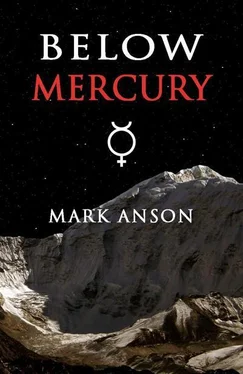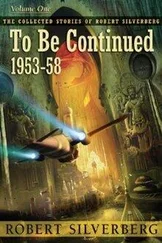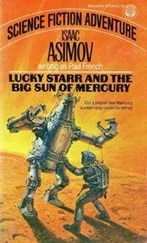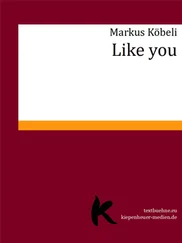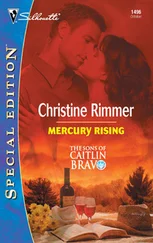He looked sunward again, wondering if he could glimpse their destination, but checked himself. Mercury was invisible, hidden behind the Sun. The small planet was flying past its furnace-like perihelion, racing round the Sun on its penultimate orbit before their meeting in three month’s time.
Instead, he turned to the right, scanning the stars, until he found the brilliant, creamy-coloured point of light that was Jupiter.
He took a long look at the distant planet. Jupiter’s giant moons, worlds in their own right, were invisible to the naked eye, but he could imagine that they were there, circling their massive primary. Volcanic Io, closest to the planet, its interior kept molten by competing tidal forces.. Then the blue-white moon of Europa, its hidden oceans covered with a thick crust of ice. Giant Ganymede – a world even bigger than Mercury – and then the cold, pock-marked ball of Callisto circling beyond the radiation belts.
He wondered what the view was like from Valhalla Base, on Callisto. Were they watching the faint light of the distant Sun reflecting off the fields of blackened ice, or was it dark in their alien sky, with the disc of Jupiter waxing above the mountains?
As he watched, he found his mind wandering in a familiar direction, and he made up his mind then, floating halfway into the airlock; he wanted to go out there, out to Jupiter.
Once this mission was over, he would have enough flying hours in space to apply for a posting to Callisto. It would cost him three years of his life, with two of them spent in stasis on the long voyages there and back, but he would come back a rich man, with an almost guaranteed promotion to captain.
It was a tempting, exhilarating thought, and all he needed to do was complete this routine mission. His flying hours were racking up with every day that passed, and this EVA would look good in his logbook, too. Not many people got a chance like this so early in their career, and he intended to make the most of it.
The thought dragged him back to the present, and he realised he had been standing there for longer than he had intended. Better get inside now.
Before he closed the airlock hatch, he took one last, slow look at the stars.
Soon, they would be too close to the Sun and its deadly radiation to risk venturing outside the protection of the ship. This was probably his last chance to see the stars and planets like this, with just the thin plastic of his helmet visor between him and the Solar System, until they reached Mercury.
The emptiness of space stretched into infinity all around him, silent, vast and still. The Baltimore fell through the vault of stars towards the Sun and the empty planet that awaited them, without any hint of its incredible speed.
The only sound was his breathing, and the steady pulsing of blood in his ears.
‘See you again soon,’ he said in a quiet voice, and he retreated into the airlock, closing the hatch behind him.
Innermost and smallest of the Sun’s family of planets, Mercury floats in the silent emptiness of space.
Mercury is so close to the Sun that it falls round in just 88 days, swinging out slow and wide on one side of its eccentric year, then racing close and fast at the other, a mere third of the distance from the Earth to the Sun.
Time and tide has slowed Mercury’s rotation, and locked it into a permanent rhythm, turning exactly twice on its axis for every three circuits round the Sun, so that Mercury’s burning day is far longer than its year. With no atmosphere, and only a feeble magnetic field to protect itself, Mercury is alone and exposed to the full might of the Sun’s heat and radiation.
Now, on August 9, 2151, just six days short of Mercury’s fearsome perihelion, a bloated Sun three times the diameter of the one seen from Earth crawls towards its searing noon. The day has lasted over 900 hours from sunrise, baking the surface of Mercury to temperatures that would turn many metals to pools of shimmering liquid. There is no air in Mercury’s jet-black sky to carry the heat away to cooler climes; the atmosphere escaped into space long ago, forced away by the intense heat and silent solar wind.
The motion of the Sun, as it nears noon, is alien and strange; it has already slowed to a near-halt in the sky. Soon, it will reverse direction for a few days, before continuing on its slow journey across the sky.
Stranger still, on this tiny world of furnace-like heat, is what lies hidden at its poles.
Mercury spins round the Sun in an almost precisely vertical orientation with respect to its orbit; the Sun’s mighty grip on the tiny world does not permit any tilt to bring the seasons.
At the poles, the Sun circles the distant horizon, never setting, and the slanting sunlight that glints across the rims of deep craters cannot penetrate into their depths. At the bottoms of these craters there are deep, cold places that have never seen the Sun, and in their depths, water from the impacts of ancient comets has frozen into great fields of glittering ice.
The ice is black from the layers of dust and impact ejecta in its depths, and the frozen ammonia, methane, and other chemicals that the comets brought from the furthest reaches of the Solar System, remnants of the primordial solar nebula. In the coldest, deepest craters, some of the ice fields are billions of years old and hundreds of metres thick. Within them are trapped millions of tonnes of the rare isotope helium-3, brought here by the comets, or implanted in the ice by the solar wind.
Helium-3 is the wonder-fuel of the twenty-second century. It can be forced to join with deuterium in the cores of fusion reactors to produce titanic amounts of energy. It produces little dangerous radiation, and it leaves no long-lived wastes or greenhouse gases. Helium-3 provides power almost beyond imagination. It has replaced all fossil fuels for power generation, reducing carbon emissions on Earth to levels not seen since the nineteenth century. It provides the power to drive the gigantic atmosphere processors on Mars, slowly changing the air over hundreds of years to terraform the planet.
There is no natural helium-3 left on Earth; it disappeared long ago under the recycling tectonic plates of the crust. It cannot be created on Earth by any safe or economic process. The only economic sources are in the ice deposits of Mercury, or on a few remote worlds in the Outer Solar System.
At billions of times the price of oil, it remains the most precious substance ever found.
Many years ago, Mercury was home to a dozen mines, extracting helium-3 from the black ice that lay in the polar craters, glistening under the stars.
Now though, the skies over Mercury are empty; the fleets of circling tugs and tankers are long gone.
Once the automated refineries in the Outer Solar System began to deliver helium-3 to Earth, the price of the precious isotope fell. The labour-intensive mines on Mercury became uneconomic, and closed one by one, until only Erebus Mine remained, surviving on deposits of rare metals deep below the crater plain.
In 2142, the mine was abandoned following the accident. Mercury was left alone once more, circling with the silent dead in the emptiness of space.
It is cold in the craters at Mercury’s poles, a cold that has existed since the beginning of time. Out on the ice fields, the mining machines lie abandoned, their cutter arms frozen in strange poses, black silhouettes against the sea of stars above.
A brighter speck of light moves slowly against the backdrop of the distant stars; after a voyage of 97 days through the deeps of interplanetary space, the Baltimore is approaching the silent planet.
Once, people working out on the ice fields would have lifted their heads and looked up at the brightening star that rose towards the zenith. Now, only the mining machines are left, frozen in the ice, and they do not stir.
Читать дальше
